Introduction
Nestled in the southwestern part of Pakistan, Balochistan is a land steeped in rich history, captivating landscapes, and a culinary heritage that beckons exploration. When it comes to the world of gastronomy, “Food in Balochistan” stands out as a vibrant tapestry woven with diverse flavors, traditional recipes, and cultural significance. This region, renowned for its rugged terrains and ancient traditions, also boasts a culinary legacy that’s as diverse as its landscapes.
Balochi cuisine, a cornerstone of the region’s identity, is a delightful fusion of flavors derived from centuries-old recipes and a tapestry of cultural influences. This cuisine is a treasure trove of taste, featuring an amalgamation of Persian, Mughal, and Afghan influences, each contributing to its unique character. The keyword “food in Balochistan” paints a picture of savory sajjis, aromatic rosh soups, and flavorful khaddi kebabs, showcasing the culinary prowess embedded in the region’s heart.
What makes “food in Balochistan” truly exceptional is its reliance on locally sourced ingredients and a harmonious blend of spices. From the aromatic saffron to the piquancy of regional herbs, every ingredient plays a pivotal role in creating the symphony of flavors that define Balochi cuisine. Whether it’s the succulent Balochi Sajji or the fragrant Balochi Pulao, each dish embodies a story passed down through generations, reflecting the cultural ethos and gastronomic prowess of the land.
In this exploration of “food in Balochistan,” we invite you on a gastronomic journey that delves into the rich history, unique ingredients, and culinary traditions that shape this vibrant cuisine. From the historical influences that have molded its flavors to the essential tips for savoring Balochi delicacies, this blog post aims to immerse you in the tantalizing world of Balochistan’s food culture. So, buckle up as we navigate through the tantalizing dishes, uncover hidden gems, and unravel the secrets behind the exquisite food in Balochistan.
List of Food in Balochistan
| S. No | Name of Food/Dish | Category | Price Range (USD & EUR) | Main Ingredients (if available) |
|---|---|---|---|---|
| 1 | Sajji | Meat dish | $15-$35 USD, €12-€30 EUR | Whole lamb/goat, spices |
| 2 | Rosh | Soup | $8-$20 USD, €7-€17 EUR | Meat broth, meat chunks, spices |
| 3 | Khaddi Kebab | Meat dish | $12-$25 USD, €10-€20 EUR | Ground meat, spices, skewered |
| 4 | Kaak | Pastry | $5-$15 USD, €4-€12 EUR | Dough, sesame seeds, butter |
| 5 | Dampukht | Meat dish | $20-$40 USD, €16-€32 EUR | Slow-cooked meat, spices |
| 6 | Landi | Savoury | $10-$25 USD, €8-€20 EUR | Meat/vegetable stew |
| 7 | Balochi Tikka | Meat dish | $10-$30 USD, €8-€25 EUR | Grilled meat, spices |
| 8 | Shorba | Soup | $7-$15 USD, €6-€12 EUR | Meat/vegetable broth |
| 9 | Balochi Pulao | Meat dish | $10-$25 USD, €8-€20 EUR | Rice, meat, spices |
| 10 | Korma | Meat dish | $12-$30 USD, €10-€25 EUR | Meat cooked in creamy sauce |
| 11 | Balochi Saaji | Meat dish | $18-$35 USD, €15-€30 EUR | Lamb/goat, spices |
| 12 | Balochi Dumba Karahi | Meat dish | $15-$30 USD, €12-€25 EUR | Lamb, tomatoes, spices |
| 13 | Doh Patti | Sweet | $5-$12 USD, €4-€10 EUR | Flour, sugar, ghee |
| 14 | Khakshir | Beverage | $3-$8 USD, €2-€7 EUR | Milk, poppy seeds, sugar |
| 15 | Balochi Marzan | Deep fry dish | $8-$18 USD, €7-€15 EUR | Minced meat, spices, deep fried |
| 16 | Balochi Khagina | Veg dish | $10-$20 USD, €8-€17 EUR | Eggs, tomatoes, spices |
| 17 | Bolo | Sweet | $7-$15 USD, €6-€12 EUR | Flour, sugar, ghee, cardamom |
| 18 | Skirt Kabab | Meat dish | $10-$28 USD, €8-€23 EUR | Minced meat, spices, skewered |
| 19 | Balochi Sajji | Meat dish | $20-$40 USD, €16-€32 EUR | Whole lamb/goat, spices |
| 20 | Balochi Khadi | Savoury | $12-$28 USD, €10-€23 EUR | Meat/vegetable stew |
| 21 | Balochi Dumba Pulao | Meat dish | $15-$30 USD, €12-€25 EUR | Rice, lamb, spices |
| 22 | Landhi Karahi | Meat dish | $12-$30 USD, €10-€25 EUR | Meat, tomatoes, spices |
| 23 | Landhi Taka Tak | Meat dish | $10-$25 USD, €8-€20 EUR | Chopped meat, spices |
| 24 | Balochi Rosh | Soup | $8-$20 USD, €7-€17 EUR | Meat broth, spices |
| 25 | Balochi Khichdi | Savoury | $10-$22 USD, €8-€18 EUR | Rice, lentils, meat, spices |
| 26 | Balochi Sheer Khurma | Sweet | $10-$25 USD, €8-€20 EUR | Vermicelli, milk, dried fruits |
| 27 | Balochi Chapshoro | Deep fry dish | $10-$28 USD, €8-€23 EUR | Dough, minced meat, spices, fried |
| 28 | Balochi Kulcha | Pastry | $5-$15 USD, €4-€12 EUR | Flatbread, sesame seeds |
| 29 | Balochi Biryani | Meat dish | $12-$30 USD, €10-€25 EUR | Rice, meat, spices |
| 30 | Balochi Halwa | Sweet | $8-$18 USD, €7-€15 EUR | Semolina, sugar, nuts, ghee |
| S. No | Name of Food/Dish | Category | Price Range (USD & EUR) | Main Ingredients (if available) |
Note: The price range provided is approximate and may vary depending on the restaurant or vendor.
Sajji: Sajji is a renowned Balochi dish made from whole lamb or chicken, marinated with a special blend of spices, including salt, cumin, and red chili powder. The meat is skewered and slow-roasted over hot coals, typically prepared in a pit or special oven called a ‘tandoor.’ It’s cooked until tender and juicy, often served with naan bread and a side of simple yogurt-based sauce or spicy chutney.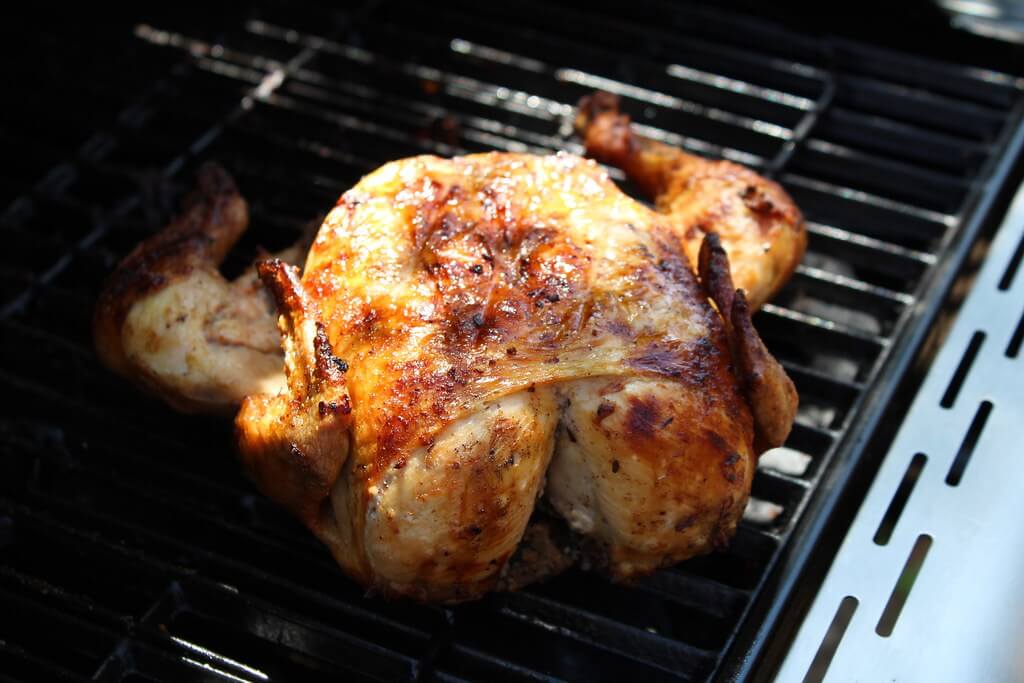
Rosh: Rosh is a traditional Balochi soup characterized by its rich and hearty flavors. It’s made by simmering chunks of meat, usually lamb or beef, in a flavorful broth enriched with a blend of local spices and herbs. Ingredients like onions, tomatoes, garlic, and various aromatic spices contribute to its savory taste. Rosh is often served piping hot and enjoyed with naan or bread.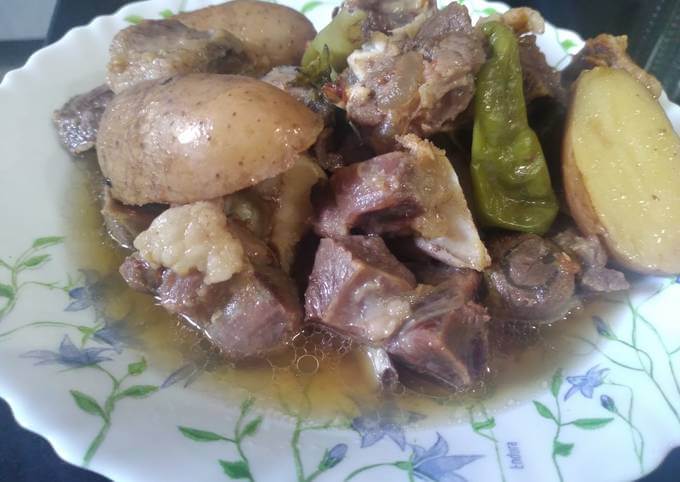
Khaddi Kebab: Khaddi Kebab is a beloved grilled dish in Balochistan, where chunks of meat, commonly beef or lamb, are marinated in a mixture of spices, yogurt, and sometimes tenderizing agents like papaya paste. The marinated meat is then skewered and cooked over open flames or in a tandoor until beautifully charred on the outside and tender inside. It’s served hot, usually with naan and a side of fresh salad.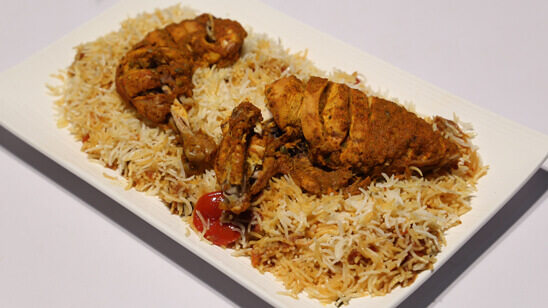
Kaak: Kaak is a traditional Balochi pastry that’s a staple in the region. These bread-like pastries are typically made with a simple dough of flour, water, yeast, and sometimes milk. They’re shaped into rounds, sprinkled with sesame seeds, and baked until golden brown. Kaak can be enjoyed plain or paired with various savory or sweet accompaniments, making it a versatile and popular snack.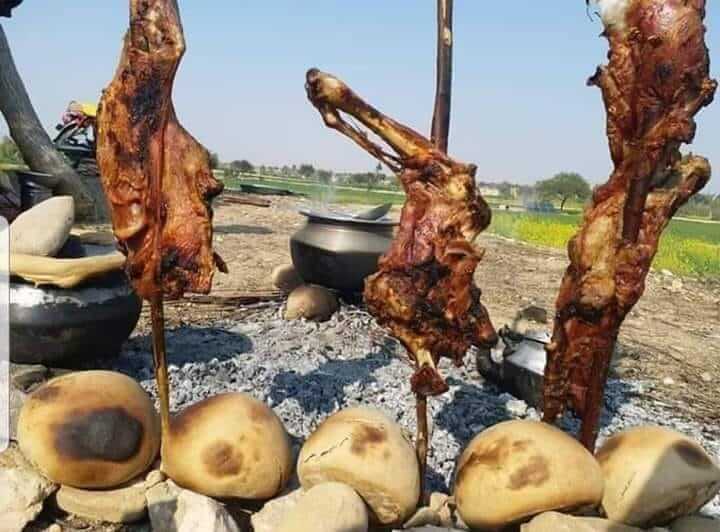
Dampukht: Dampukht is a flavorful and aromatic slow-cooked meat dish originating from Balochi cuisine. The dish involves marinating meat, often lamb or beef, in a blend of spices and yogurt to tenderize it. The marinated meat is then sealed in a pot (‘dampukht’ translates to ‘steam-cooked’) with other ingredients like onions, tomatoes, and additional spices. It’s cooked on low heat, allowing the flavors to meld together, resulting in a tender and succulent dish.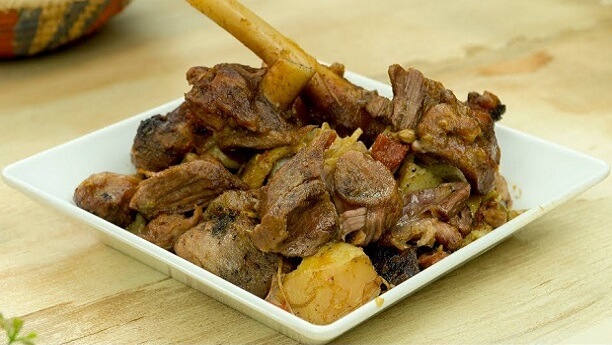
Landi: Landi is a savory and aromatic stew prepared with either meat or vegetables. The dish typically includes a medley of ingredients such as tomatoes, onions, garlic, and various spices simmered together to create a flavorful base. Meat or vegetables are then added to the stew and cooked until tender, allowing the flavors to meld. It’s commonly served with naan or rice.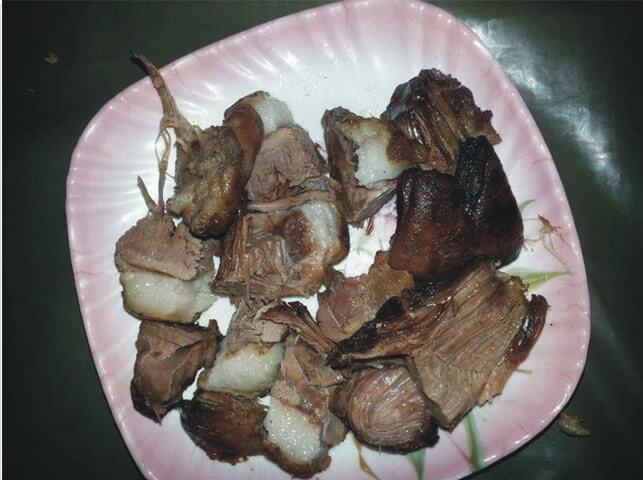
Balochi Tikka: Balochi Tikka consists of marinated chunks of meat, often chicken or beef, which are skewered and grilled to perfection. The marinade comprises a blend of spices like cumin, coriander, turmeric, and yogurt, lending the meat a tender texture and flavorful taste. It’s a popular street food and is often served with naan and chutney.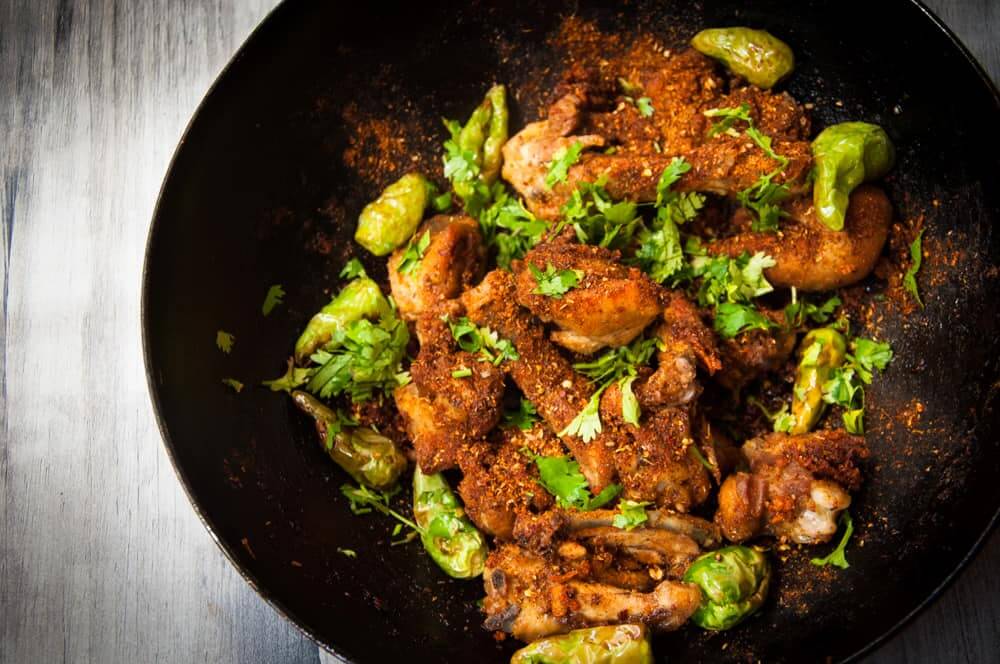
Shorba: Shorba is a comforting and nourishing soup widely enjoyed in Balochi cuisine. It’s a simple yet flavorful broth made by simmering meat, such as lamb or chicken, along with vegetables and aromatic spices. Onions, tomatoes, garlic, and a blend of traditional spices create the base for this soul-warming soup. Shorba is often served as a starter or alongside rice or bread.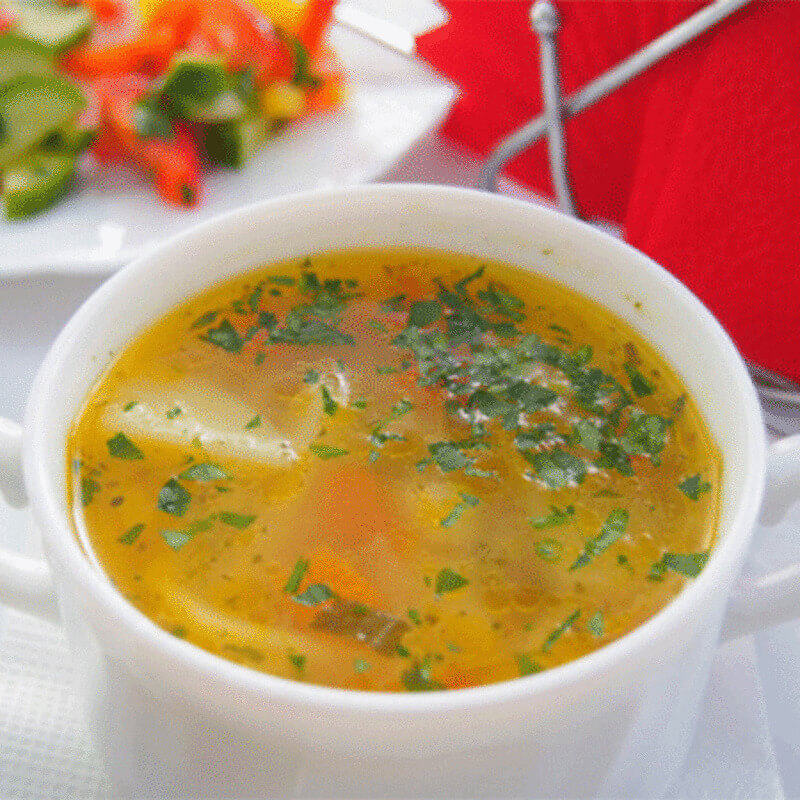
Balochi Pulao: Balochi Pulao is a fragrant rice dish cooked with tender pieces of meat, usually lamb or chicken, and an assortment of spices. The rice is typically flavored with aromatic spices like cardamom, cloves, and cinnamon, along with caramelized onions and sometimes dried fruits and nuts for added richness and texture. It’s a celebratory dish often served during special occasions and gatherings.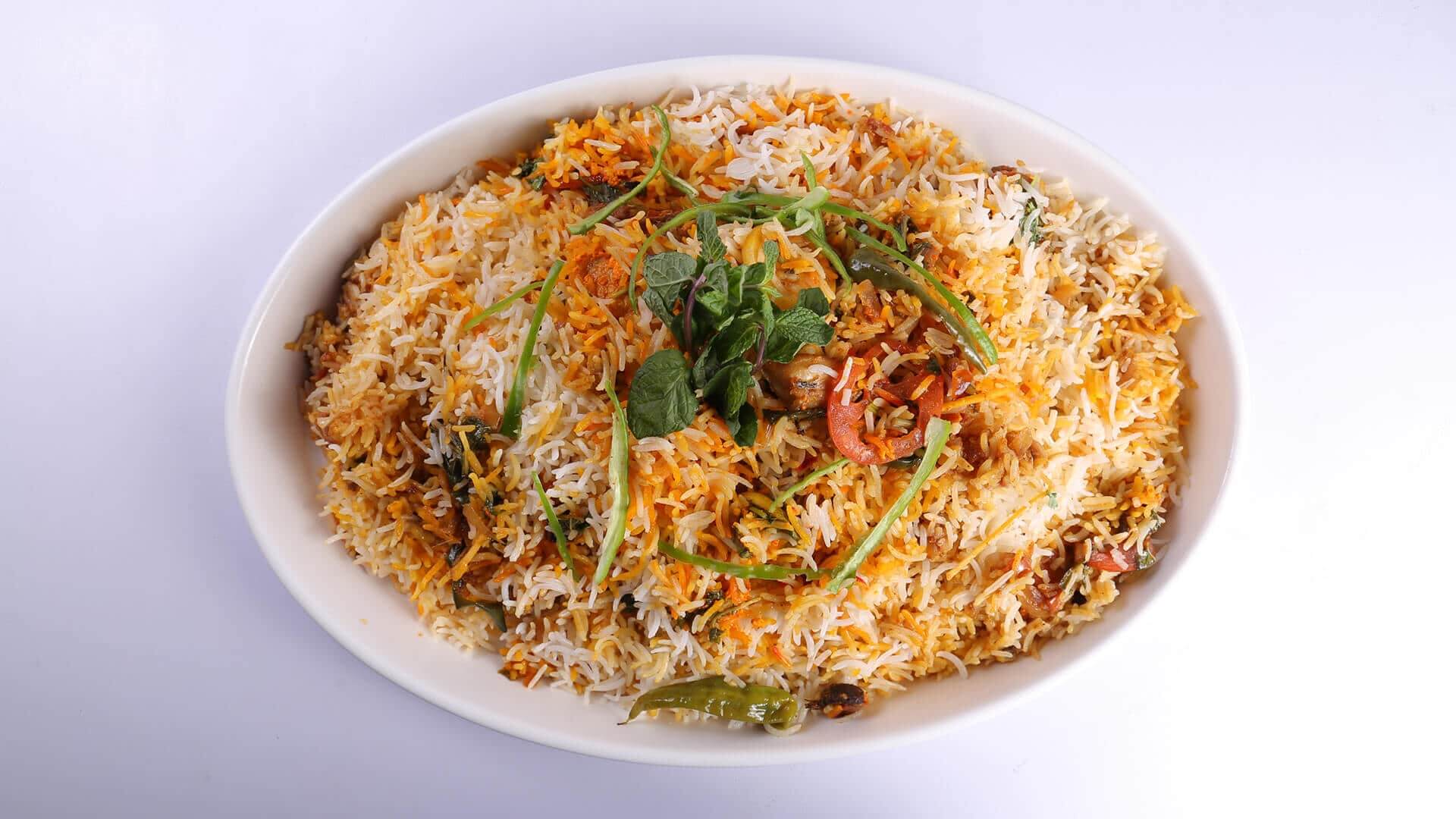
Korma: Balochi Korma is a luxurious and creamy meat dish cooked in a rich sauce made with yogurt, cream, or a nut base such as ground almonds. The meat, commonly chicken or beef, is marinated and slow-cooked with a blend of aromatic spices, creating a velvety sauce that coats the tender pieces of meat. It’s a dish known for its indulgent flavors and is often served with naan or rice.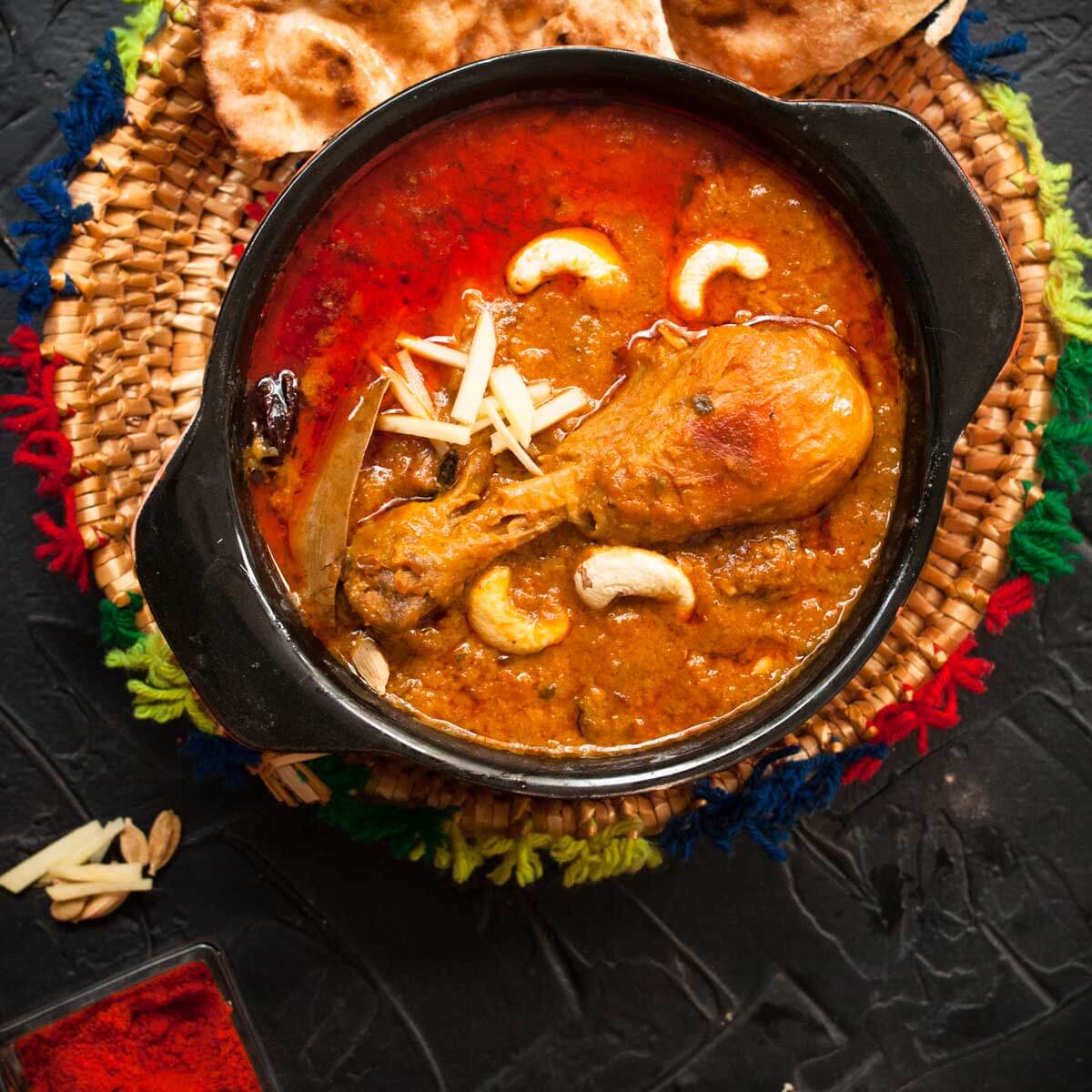
Balochi Saaji: Balochi Saaji is a traditional dish prepared by slow-cooking meat, typically lamb or goat, in its fat in a special vessel known as a ‘Saaji.’ The meat is cooked over a low flame for an extended period, resulting in incredibly tender and flavorful meat that’s infused with its natural juices and spices. This cooking method ensures a unique and delicious dining experience.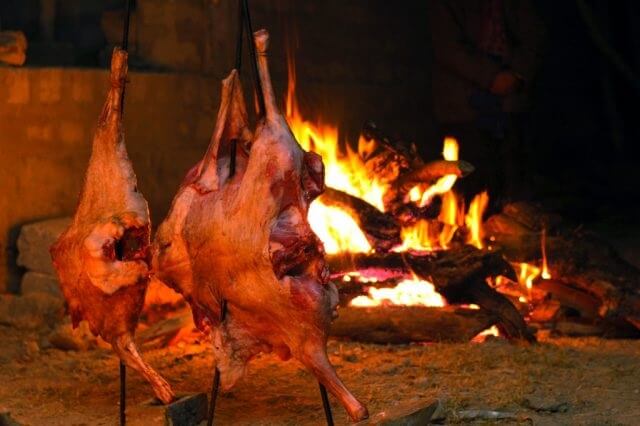
Balochi Dumba Karahi: Balochi Dumba Karahi is a delectable lamb curry cooked in a karahi (wok-like cooking vessel). The dish involves sautéing lamb pieces with onions, tomatoes, and a blend of spices including cumin, coriander, and chili. It’s cooked until the meat is tender and the flavors are well-incorporated, resulting in a spicy and aromatic curry that pairs perfectly with naan or rice.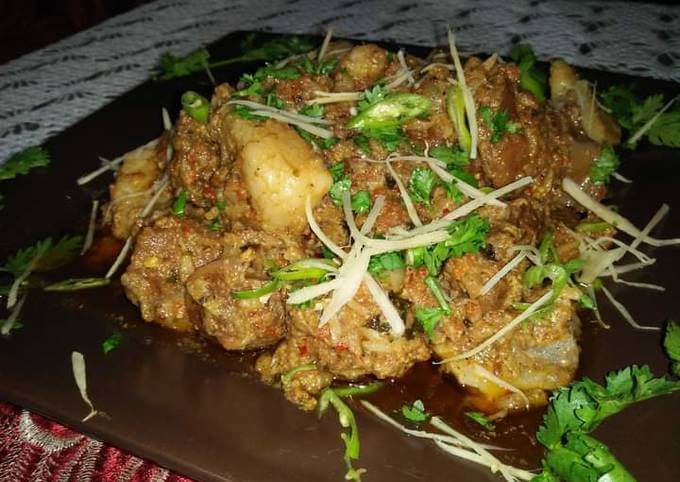
Doh Patti: Doh Patti is a sweet delicacy made by frying thin layers of dough in ghee (clarified butter) until they’re crispy and golden brown. These fried layers are then dipped in a sugar syrup flavored with cardamom, saffron, or rose water, imparting a delightful sweetness and fragrance to the dessert.
Khakshir: Khakshir is a traditional beverage popular in Balochistan made from ground poppy seeds, milk, and sugar. It’s often served cold and is known for its refreshing and nutty flavor, making it a soothing drink enjoyed during hot weather.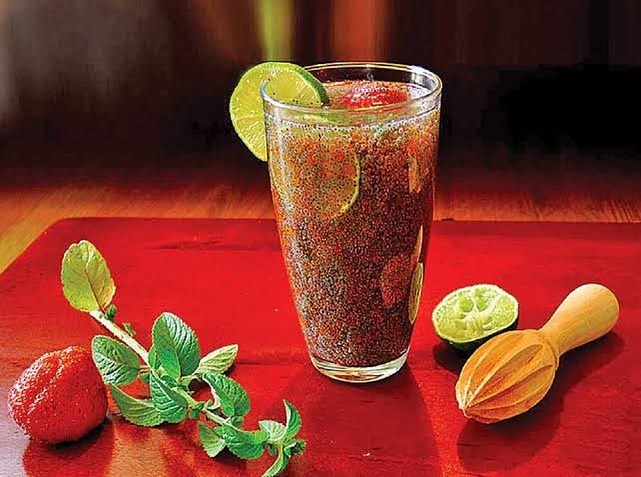
Balochi Marzan: Balochi Marzan is a deep-fried dish made from minced meat combined with a flavorful mix of spices. The seasoned meat mixture is shaped into patties or balls and then deep-fried until crispy and golden brown. It’s a savory snack or side dish appreciated for its crunchy texture and rich taste.
Balochi Khagina: Balochi Khagina is a flavorful egg-based dish made with whisked eggs cooked alongside tomatoes, onions, and a blend of spices. The dish resembles a type of scrambled eggs but is more aromatic and savory due to the addition of spices like cumin, turmeric, and chili powder. It’s often enjoyed with naan or bread as a wholesome breakfast or brunch option.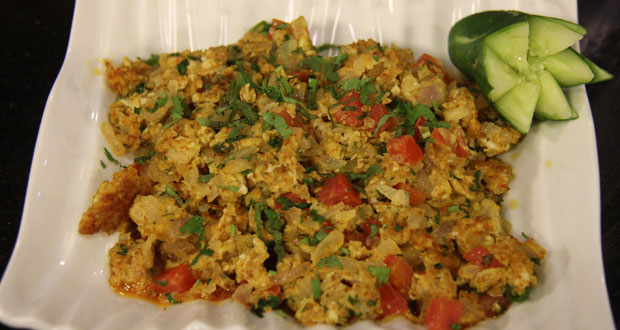
Bolo: Bolo is a traditional sweet treat in Balochistan made from basic ingredients like flour, sugar, and ghee (clarified butter). The ingredients are mixed to form a dough, which is then shaped into round cookies or discs and baked until they turn golden brown. These delightful sweet discs have a buttery texture and a touch of sweetness, making them a beloved snack or dessert.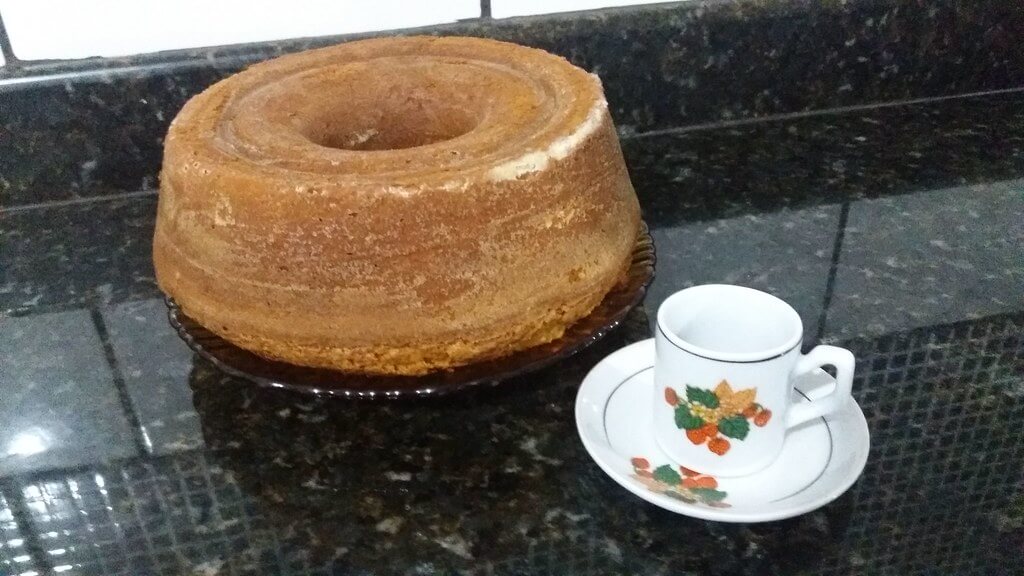
Skirt Kabab: Skirt Kabab is a popular grilled dish prepared by marinating minced meat, typically beef or lamb, with a blend of spices like coriander, cumin, and paprika. The marinated meat is then shaped onto skewers or molded around skewers to form elongated shapes resembling a skirt. The kababs are grilled to perfection, resulting in juicy and flavorful meat enjoyed with naan or rice.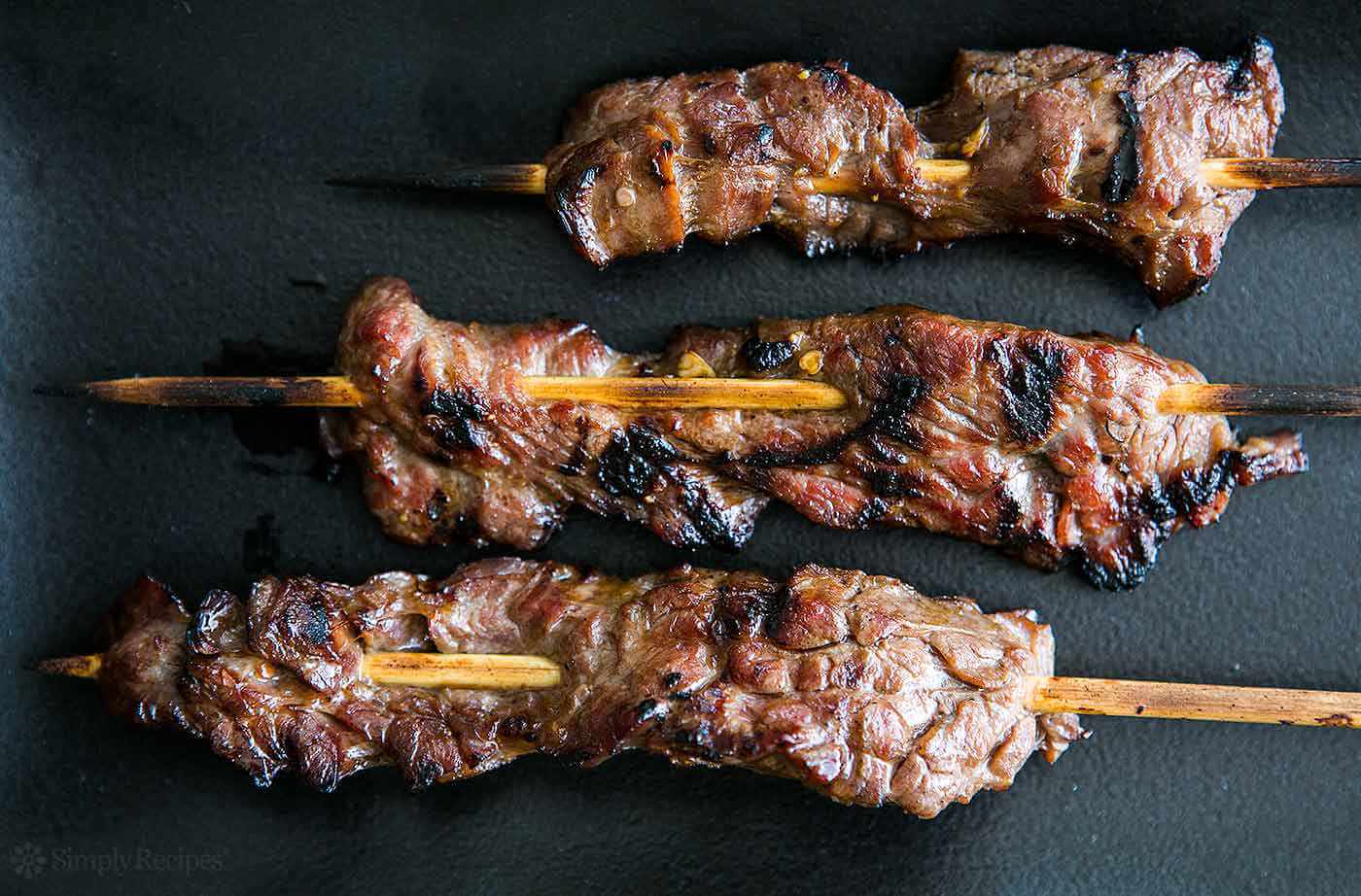
Balochi Khadi: Balochi Khadi is a traditional savory stew prepared by simmering meat, often beef or chicken, along with a mix of vegetables like potatoes, carrots, and peas in a rich and aromatic broth. The stew is seasoned with a blend of spices, creating a hearty and comforting dish that’s commonly served with rice or flatbread.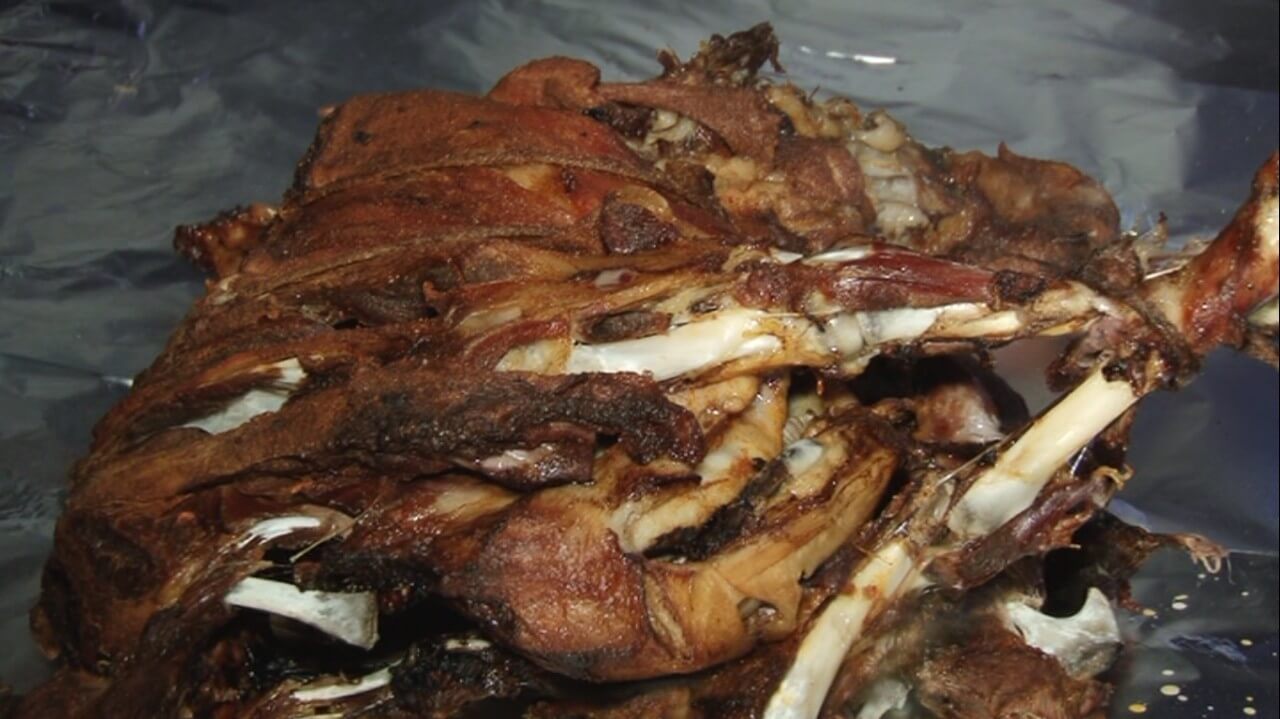
Balochi Dumba Pulao: Balochi Dumba Pulao is a fragrant rice dish cooked with tender pieces of lamb and an assortment of aromatic spices. The dish involves cooking the rice and marinated lamb together, allowing the flavors to meld as the rice absorbs the essence of the meat and spices. It’s a celebratory dish cherished for its rich flavors and is often served at special occasions and gatherings.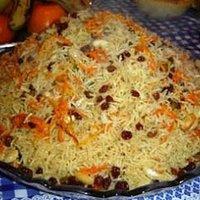
Landhi Karahi: Landhi Karahi is a savory meat curry cooked in a karahi (wok-like cooking vessel) and hails from the Landhi region of Balochistan. It involves cooking meat, commonly chicken or beef, with tomatoes, onions, and a blend of spices such as cumin, coriander, and red chili powder. The dish is cooked until the meat is tender and the flavors have melded, resulting in a delicious and aromatic curry.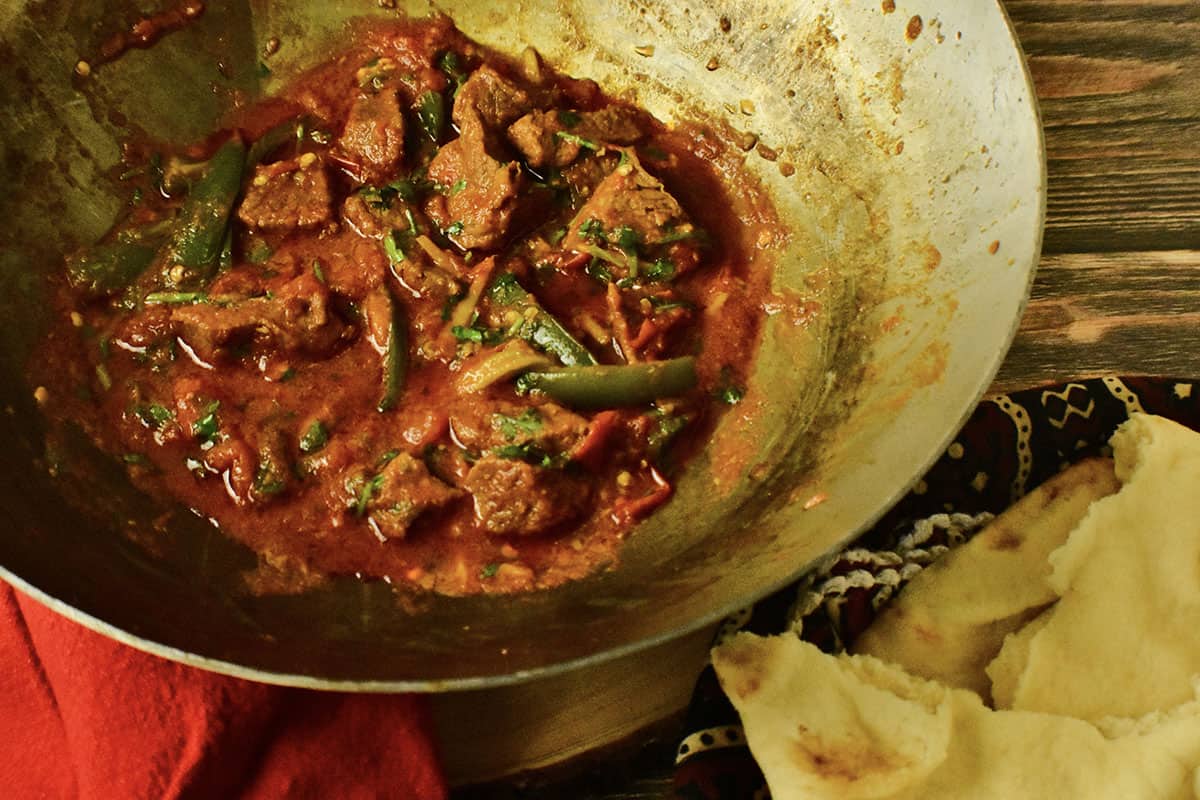
Landhi Taka Tak: Landhi Taka Tak is a spicy and flavorful stir-fry dish made by quickly cooking thin slices of meat, often beef or lamb, with onions, tomatoes, and a mix of spices. The name “Taka Tak” comes from the sound of metal spatulas hitting the griddle while cooking this dish. It’s a popular street food enjoyed for its bold flavors and is often served with naan or roti.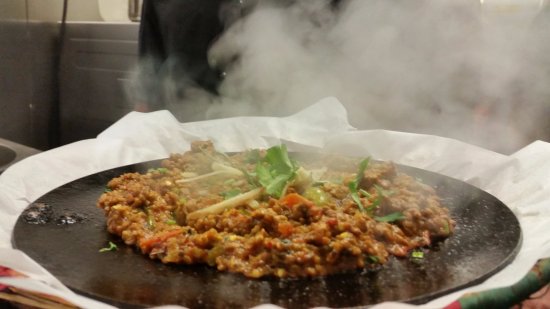
Balochi Khichdi: Balochi Khichdi is a comforting one-pot dish made by simmering rice, lentils, and meat, usually lamb or chicken, together with an assortment of spices. This wholesome dish is cooked until the ingredients blend harmoniously, resulting in a nourishing and flavorful meal often enjoyed during colder weather or as a hearty meal.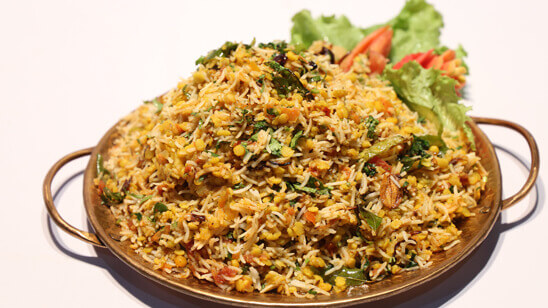
Balochi Sheer Khurma: Balochi Sheer Khurma is a traditional dessert prepared with vermicelli, milk, sugar, and dried fruits like dates, raisins, and almonds. The ingredients are simmered together until the vermicelli is cooked and the mixture thickens, creating a creamy and aromatic dessert. It’s commonly served during festive occasions such as Eid and weddings.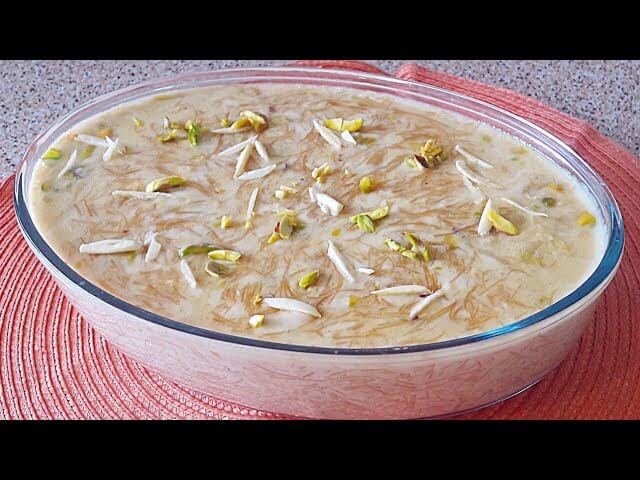
Balochi Chapshoro: Balochi Chapshoro is a savory pastry filled with a delicious mixture of minced meat, onions, and a blend of spices like cumin and coriander. The filling is enclosed in a dough and flattened into a disc, which is then pan-fried until golden and crispy. It’s a popular snack or street food loved for its savory flavors and crunchy texture.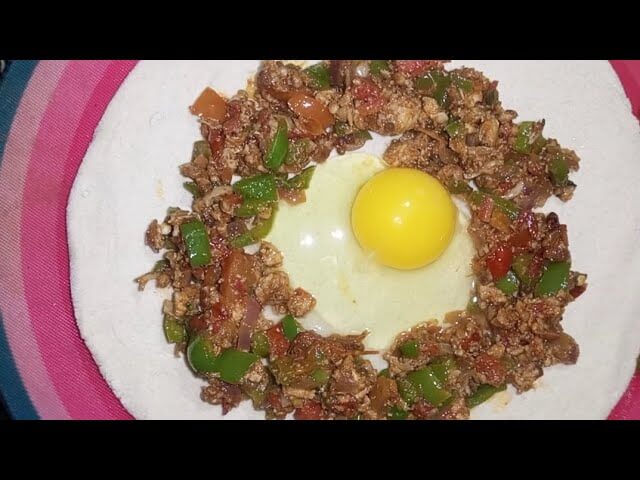
Balochi Kulcha: Balochi Kulcha is a type of flatbread that’s soft and fluffy on the inside with a slightly crispy exterior. It’s made from simple ingredients like flour, yeast, water, and salt. The dough is rolled into rounds and cooked on a griddle or tandoor until it puffs up and develops a golden-brown crust. It’s a versatile bread often served alongside savory dishes or used to scoop up curries.
Balochi Biryani: Balochi Biryani is a flavorful rice dish cooked with marinated meat, commonly chicken or lamb, and aromatic spices. The rice is typically layered with the meat and cooked together, allowing the flavors to meld. It’s often garnished with fried onions, dried fruits, and nuts, creating a fragrant and indulgent dish enjoyed on special occasions.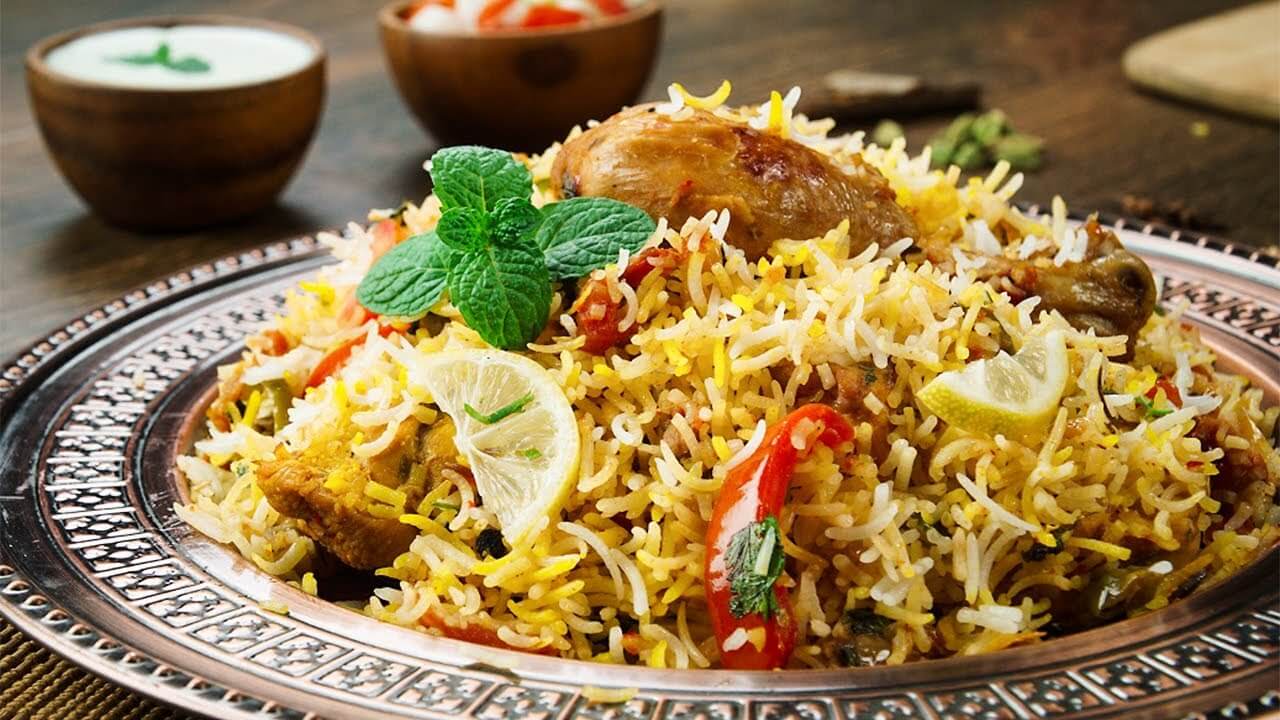
Balochi Halwa: Balochi Halwa is a sweet dessert made by simmering semolina (suji), sugar, ghee, and sometimes milk together until it thickens and attains a pudding-like consistency. It’s flavored with cardamom, and saffron, and garnished with nuts like almonds and pistachios. Balochi Halwa is a popular sweet treat served during festivals, weddings, and celebrations.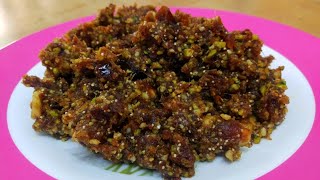
Balochi Sajji: Balochi Sajji is a signature dish of Balochistan, consisting of whole lamb or chicken that’s marinated with spices like salt, cumin, and red chili powder. The meat is skewered and slow-roasted over hot coals until tender and succulent. It’s a celebratory dish and a staple at feasts and gatherings, often served with naan and accompanied by simple yogurt-based sauce or chutney.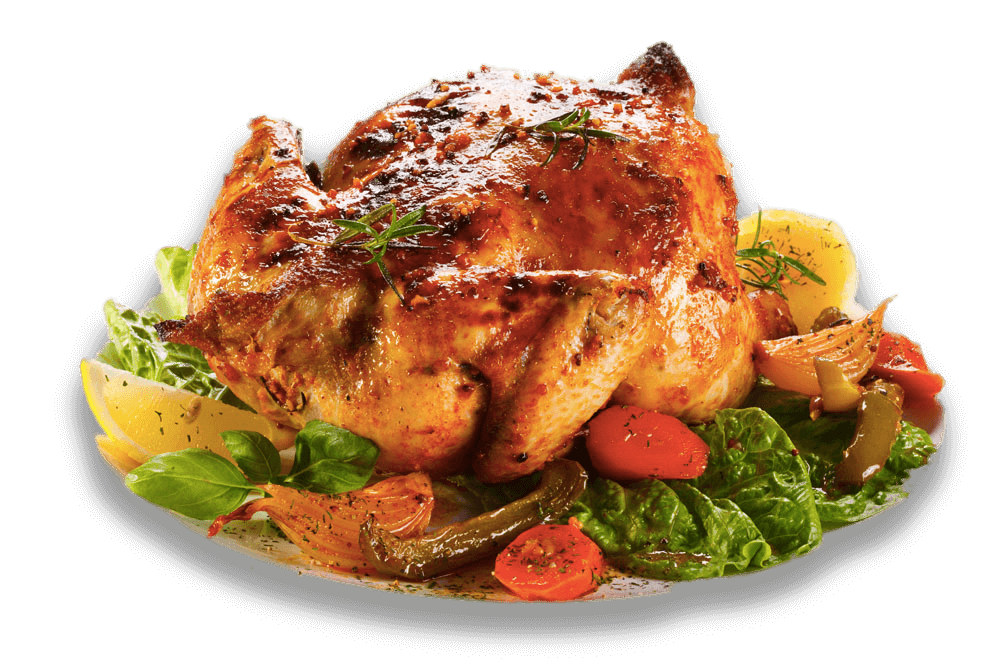
Balochi Rosh: Balochi Rosh is a traditional soup renowned for its rich flavors. It’s prepared by simmering chunks of meat, typically lamb or beef, in a flavorful broth infused with a blend of local spices and herbs. Ingredients like onions, tomatoes, garlic, and various aromatic spices contribute to its savory taste. Balochi Rosh is often served hot and enjoyed as a nourishing meal with naan or bread.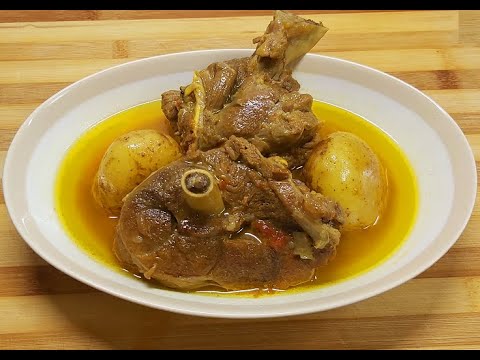
History and Culture
Historical Influences
Balochi cuisine bears the indelible marks of historical influences, a culinary tapestry woven over centuries by diverse cultures that traversed the region. The keyword “food in Balochistan” serves as a gateway to explore the rich historical amalgamation.
Culinary Melting Pot The traces of Persian, Mughal, Afghan, and even Arabian influences have left an indelible mark on Balochi cuisine. These cultural exchanges, brought forth by conquests, migrations, and trade, introduced an array of spices, ingredients, and cooking techniques that have become integral to the region’s culinary identity.
Trade Routes and Culinary Diversity The vibrant spice routes passing through Balochistan played a pivotal role in the diversity of ingredients and cooking methods. The convergence of cultures along these trade routes facilitated the exchange of culinary practices, leading to a fusion of flavors that distinguish Balochi cuisine today.
Culinary Traditions
Balochi culinary traditions offer a glimpse into time-honored cooking methods and revered rituals deeply rooted in the region’s heritage.
Traditional Cooking Methods The essence of Balochi cuisine lies in its traditional cooking methods and culinary rituals passed down through generations. From slow-roasting meat in the Sajji to the art of dum cooking in Pulao, these techniques epitomize the mastery and finesse of Balochi chefs.
Communal Dining and Hospitality Food in Balochistan is more than sustenance; it’s an embodiment of hospitality and communal bonding. The tradition of inviting guests to share meals showcases the significance of food in fostering connections and showcasing the warm hospitality that defines Balochi culture.
Cultural Significance of Food
Food in Balochistan forms an integral part of cultural celebrations, ceremonies, and daily life, resonating deeply within the fabric of the society.
Festivals and Ceremonies From weddings to religious celebrations, Balochi cuisine takes center stage. Each dish holds a symbolic significance, reflecting the cultural values and traditions associated with specific occasions.
Stories and Myths The culinary landscape of Balochistan is adorned with stories and myths woven around particular dishes. These narratives passed down through generations, add layers of mystique and intrigue to the food, narrating tales of origin and cultural significance.
Tips and Tricks
As you embark on your journey to explore the delectable world of “food in Balochistan,” here are some invaluable tips and tricks to make the most of this culinary adventure.
Best Dining Practices
Authentic Experiences Discovering authentic Balochi cuisine is a delightful journey in itself. Seek out local eateries, markets, or family-owned restaurants known for serving traditional dishes. Embrace the charm of small, tucked-away spots that brim with the true essence of Balochi flavors.
Timing Matters Timing is crucial when indulging in Balochi culinary delights. Certain dishes like Sajji or Rosh are best savored during specific seasons or times of the day, ensuring the freshest ingredients and flavors at their peak.
Dining Etiquette Respect local customs and dining etiquette while relishing “food in Balochistan.” Embrace communal dining customs and savor the dishes with your hands, immersing yourself in the cultural experience.
Cooking at Home
Iconic Recipes Experience the joys of cooking iconic Balochi dishes right in your own kitchen. Explore beginner-friendly recipes for classics like Balochi Sajji, Pulao, or Chapshoro. These recipes encapsulate the essence of “food in Balochistan” and are perfect for a flavorful home-cooked meal.
Authentic Ingredients Sourcing authentic ingredients is pivotal in recreating the authentic flavors of Balochi cuisine. While outside Balochistan, explore specialty stores or online platforms that offer a diverse range of spices, meats, and grains unique to the region. Seek out local markets that might carry specific Balochi ingredients, ensuring an authentic culinary experience.
Embracing the Essence of Balochi Cuisine Embarking on a journey to explore food in Balochistan is not merely about savoring dishes; it’s about immersing oneself in a cultural and gastronomic adventure. From understanding the nuances of dining customs to recreating flavors at home, these tips and tricks serve as your gateway to unraveling the soulful and diverse culinary heritage of Balochistan.
Ingredients
Delve into the vibrant tapestry of ingredients that form the heart and soul of “food in Balochistan,” each contributing to the rich flavors and unique identity of Balochi cuisine.
Key Ingredients
Lamb, Rice, and Saffron Lamb stands tall as a cornerstone of Balochi dishes, lending its succulent and tender qualities to various recipes. Rice, especially in dishes like Pulao and Biryani, takes center stage, offering a fragrant and fluffy base to complement savory meats. Saffron, a precious spice, infuses dishes with its golden hue and distinctive aroma, enhancing the essence of Balochi cuisine.
Essential Spices and Herbs Discover the origins and cultural significance of spices and herbs crucial to Balochi dishes. Cumin, coriander, turmeric, and dried red chilies impart depth and complexity to the cuisine, tracing their roots to ancient trade routes and cultural exchanges that have shaped “food in Balochistan.”
Seasonal Produce
Fruits and Vegetables Balochi cuisine harmonizes with the changing seasons, incorporating a bounty of seasonal produce. From pomegranates and dates to spinach, eggplants, and tomatoes, seasonal fruits and vegetables add freshness, texture, and vibrant flavors to Balochi dishes. Embracing locally sourced ingredients captures the essence of each season in every bite.
Emphasis on Freshness The emphasis on fresh, locally sourced produce elevates the taste and nutritional value of Balochi cuisine. Farmers’ markets and local vendors play a crucial role in providing a diverse array of seasonal produce, ensuring that every ingredient contributes to the authenticity of “food in Balochistan.”
Traditional Flavors
Unique Condiments and Flavors Explore the unique flavors and condiments that define Balochi cuisine. From tangy mango powder (amchur) to aromatic garam masala blends, these distinct elements are meticulously combined to create a symphony of tastes, balancing tanginess, spiciness, and aromatic richness.
Fusion of Tastes Witnesses how the careful combination of ingredients results in the distinctive flavors of Balochi dishes. The subtle use of spices, the layering of flavors, and the artful balance between ingredients give rise to dishes that encapsulate the cultural heritage and culinary artistry inherent in “food in Balochistan.”
Sustainability and Local Sourcing
Emphasis on Locally-Sourced Ingredients
Sustainability in Balochi Food Culture “Food in Balochistan” is not just about flavors; it’s a commitment to sustainability ingrained in the culinary ethos. Locally sourced ingredients are the bedrock of Balochi cuisine, emphasizing sustainability by reducing carbon footprints and supporting regional ecosystems.
Champions of Local Produce Several restaurants and markets in Balochistan have taken up the mantle of promoting local produce. These establishments prioritize sourcing fresh, seasonal ingredients from nearby farms and artisans, ensuring that every dish served encapsulates the essence of the region.
Community Impact
Impact on Community and Economy Supporting local food sources creates a ripple effect that reverberates through the community and economy of Balochistan. By fostering partnerships with local farmers and producers, the food industry bolsters livelihoods, strengthens local economies, and preserves traditional agricultural practices.
Stories of Sustainable Initiatives Across Balochistan, inspiring initiatives championing sustainable practices have emerged. These success stories highlight innovative approaches, such as farmer cooperatives, organic farming initiatives, and marketplaces exclusively dedicated to locally sourced products. These endeavors not only ensure the availability of fresh, high-quality ingredients but also contribute to environmental conservation and community empowerment.
Balochi cuisine isn’t just a celebration of flavors; it’s a testament to the commitment towards sustainability and community well-being. The emphasis on locally sourced ingredients isn’t merely a culinary choice; it’s a philosophy that embodies the cultural reverence for nature and the profound connection between “food in Balochistan” and the region’s rich ecosystems.
Pairings and Recommendations
Beverage Pairings
Complementary Beverages To elevate the experience of indulging in “food in Balochistan,” consider pairing Balochi dishes with beverages that complement their flavors. Tangy and refreshing drinks like lassi or traditional yogurt-based drinks contrast beautifully with the spiciness of Balochi kebabs or curries. Additionally, the subtle notes of Balochi tea, often brewed with aromatic spices, can harmonize exquisitely with the intricate flavors of the cuisine.
Insight into Traditional Drinks Traditional Balochi beverages hold a significant place in the culinary landscape. Dive into the heritage of drinks like Kahwa, a flavorful green tea infused with saffron, cardamom, and almonds, or Sekanjabin, a sweet and sour drink made with vinegar and mint, which offer a glimpse into the diverse palate of “food in Balochistan.”
Other Must-Try Dishes
Additional Culinary Delights Exploring beyond the highlighted dishes opens doors to a plethora of culinary treasures in Balochistan. Delve into Balochi Khichdi, a comforting rice and lentil dish, or savor the aromatic flavors of Balochi Kulcha, a soft and savory flatbread that perfectly complements various Balochi curries. Beyond these, visiting local eateries renowned for their Landhi Karahi or Landhi Taka Tak dishes promises an authentic taste of the region’s culinary prowess.
Unique Culinary Experiences Discovering Balochi cuisine isn’t confined to specific dishes but extends to unique culinary experiences. Engage in the local culture by participating in food festivals or visiting bustling street markets where vendors offer an array of Balochi snacks and delicacies. Exploring eateries tucked away in the winding streets allows for unexpected encounters with hidden culinary gems, providing an authentic taste of food in Balochistan.
Cultural Significance
Food as a Cultural Anchor
Integral to Daily Life Food in Balochistan transcends mere sustenance; it embodies a cultural ethos ingrained in the daily lives of its people. Every meal carries the weight of traditions, heritage, and communal values, forming an integral part of the region’s cultural fabric.
Reflection of Values and Beliefs The culinary landscape of Balochistan mirrors the values and beliefs deeply rooted in its society. The emphasis on communal dining reflects the strong bonds of family, hospitality, and community, where sharing a meal symbolizes kinship and unity.
Food in Festivals and Ceremonies
Festive Celebrations Festivals and ceremonies in Balochistan are incomplete without the richness of culinary traditions. “Food in Balochistan” takes center stage during celebrations, with dishes symbolizing abundance, prosperity, and the spirit of togetherness.
Symbolism and Rituals Specific dishes hold symbolic significance, marking auspicious occasions and rites of passage. From elaborate wedding feasts to religious ceremonies, each dish tells a story, conveying cultural symbolism and deep-rooted beliefs.
Culinary Heritage and Identity
Culinary Heritage Balochi cuisine serves as a custodian of cultural heritage, preserving ancestral recipes passed down through generations. The art of cooking and sharing these recipes embodies a sense of identity, preserving customs and fostering a connection to the region’s roots.
Cultural Fusion and Diversity The fusion of culinary influences reflect the diverse history and cultural exchanges in Balochistan. Persian, Mughal, and Afghan influences converge, creating a culinary tapestry that showcases the region’s diversity and openness to cultural amalgamation.
Values Encapsulated in Every Dish
Hospitality and Generosity The hospitality ingrained in Balochi culture is manifested through the generosity of sharing meals. Guests are warmly welcomed, and tables are laden with an array of dishes, symbolizing warmth, respect, and generosity.
Resilience and Resourcefulness The resourcefulness of Balochi cuisine, utilizing locally sourced ingredients and traditional cooking methods, reflects the resilience of its people. It underscores the ability to adapt, survive, and thrive in harsh terrains, mirroring the region’s resilience.
“Food in Balochistan” transcends its gastronomic appeal; it’s a vessel that encapsulates the essence of culture, community, and heritage. From daily meals to festive celebrations, each dish becomes a conduit, carrying the values, beliefs, and stories of the people who call Balochistan home.
Conclusion
In exploring the tantalizing world of food in Balochistan, we’ve embarked on a sensory journey steeped in cultural richness and gastronomic diversity. The culinary heritage of Balochistan, woven intricately with historical influences and traditional practices, is a testament to the region’s vibrant soul.
From the aromatic spices that infuse every dish to the locally sourced ingredients that echo sustainability and community, Balochi cuisine is a mosaic of flavors, each bite telling a story of cultural exchange and culinary craftsmanship. The cuisine’s significance extends far beyond the mere act of eating; it embodies traditions, celebrations, and the warmth of Balochi hospitality.
As we conclude this exploration, we invite you to immerse yourself in the vibrant tapestry of Balochi cuisine. Venture into the bustling markets, savor the aroma of spices mingling in the air and relish the authenticity of local eateries. Embrace the communal dining customs, indulge in the delicacies, and let the flavors of “food in Balochistan” captivate your senses.
Let this journey kindle a curiosity to delve deeper into Balochi culinary treasures, beyond the highlighted dishes, and uncover the hidden gems that define the region’s gastronomic prowess. May your exploration of food in Balochistan be a celebration of cultural diversity, a tribute to local traditions, and an appreciation of the flavors that connect us to this vibrant land.

